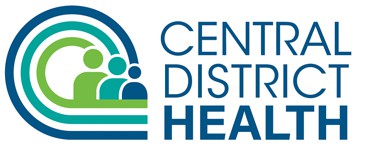Treatment with monoclonal antibody therapies continues to be recommended for certain patients with COVID-19 who are at high-risk of progression to severe disease. However, there are some recent changes of which healthcare providers should be aware.
Distribution of bamlanivimab/etesevimab has been paused
As of June 25, 2021, the distribution of bamlanivimab and etesevimab together and etesevimab alone (to pair with existing facility supply of bamlanivimab) has been paused until further notice due to concerns about treatment failure with certain SARS-CoV-2 variants. In vitro assays suggest that bamlanivimab and etesevimab administered together are not active against eithe the P.1/Gamma variant (first identified in Brazil) or the B.1.351/Beta variant (first identified in South Africa), and these two variants are increasing in frequency in the United States. The U.S. Food and Drug Administration (FDA) recommends that alternative monoclonal antibody therapies (such as casirivimab/imdevimab or sotrovimab) be used instead for eligible patients.
Casirivimab/imdevimab (REGEN-COV) can now be administered by subcutaneous injection Casirivimab/imdevimab was initially authorized for use by intravenous infusion only, and this is still the strongly recommended route. However, subcutaneous injection is now an alternative route of administration when intravenous infusion is not feasible and would lead to delay in treatment. This change provides additional flexibility for treating eligible patients when infusion services are not readily available.
Casirivimab/imdevimab (REGEN-COV) dosage has changed As of June 3, 2021, the authorized dose of REGEN-COV is 600 mg of casirivimab and 600 mg of imdevimab administered together as a single intravenous infusion or by subcutaneous injection. This is half the dose that was originally authorized.
Another monoclonal antibody treatment, sotrovimab, has received emergency use authorization Sotrovimab (GSK/Vir Biotechnology) received emergency use authorization by the FDA in May, 2021. Sotrovimab is administered by intravenous infusion, and the indications for use are the same as those for the other monoclonal antibodies. Sotrovimab is not distributed by the U.S. Government and is only available commercially.
Providers have more discretion in determining patient eligibilityMonoclonal antibodies continue to be authorized for the treatment of mild to moderate COVID- 19 in adults and pediatric patients (12 years of age and older weighing at least 40 kg) with positive results of direct SARS-CoV-2 viral testing, and who are at high risk for progression to severe COVID-19, including hospitalization or death. However, the criteria for determining which patients are considered high-risk for progression to severe COVID-19, and therefore eligible for treatment with monoclonal antibody therapy, have been updated. Providers can now consider other medical conditions or factors (for example, race or ethnicity) that may place individual patients at high risk for progression. Healthcare providers should consider the benefit-risk for an individual patient. Details on eligibility can be found in the “Fact Sheets for Healthcare Providers” (linked below) or at: https://combatcovid.hhs.gov/sites/default/files/documents/High-RiskCOVID_19Patients-
062021.pdf
Resources
- U.S. Department of Health & Human Services/Office of the Assistant Secretary for Preparedness and Response announcement on “Pause in the Distribution of bamlanivimab/etesevimab”: https://www.phe.gov/emergency/events/COVID19/investigation-MCM/Bamlanivimab- etesevimab/Pages/bamlanivimab-etesevimab-distribution-pause.aspx
- Ordering information for casirivimab/imdevimab from the drug’s sole distributor, AmerisourceBergen, Inc.: https://app.smartsheet.com/b/form/255d164d67834793b4ab549e160941e8
- Updated Fact Sheet for Healthcare Providers on Emergency Use Authorization (EUA) of REGEN-COV (casirivimab and imdevimab): https://www.fda.gov/media/145611/download
- Fact Sheet for Healthcare Providers on Emergency Use Authorization (EUA) of sotrovimab: https://gskpro.com/content/dam/global/hcpportal/en_US/Prescribing_Information/Sotrovim ab/pdf/SOTROVIMAB-EUA.PDF#nameddest=HCPFS
- Sotrovimab webpage: https://www.sotrovimab.com/

